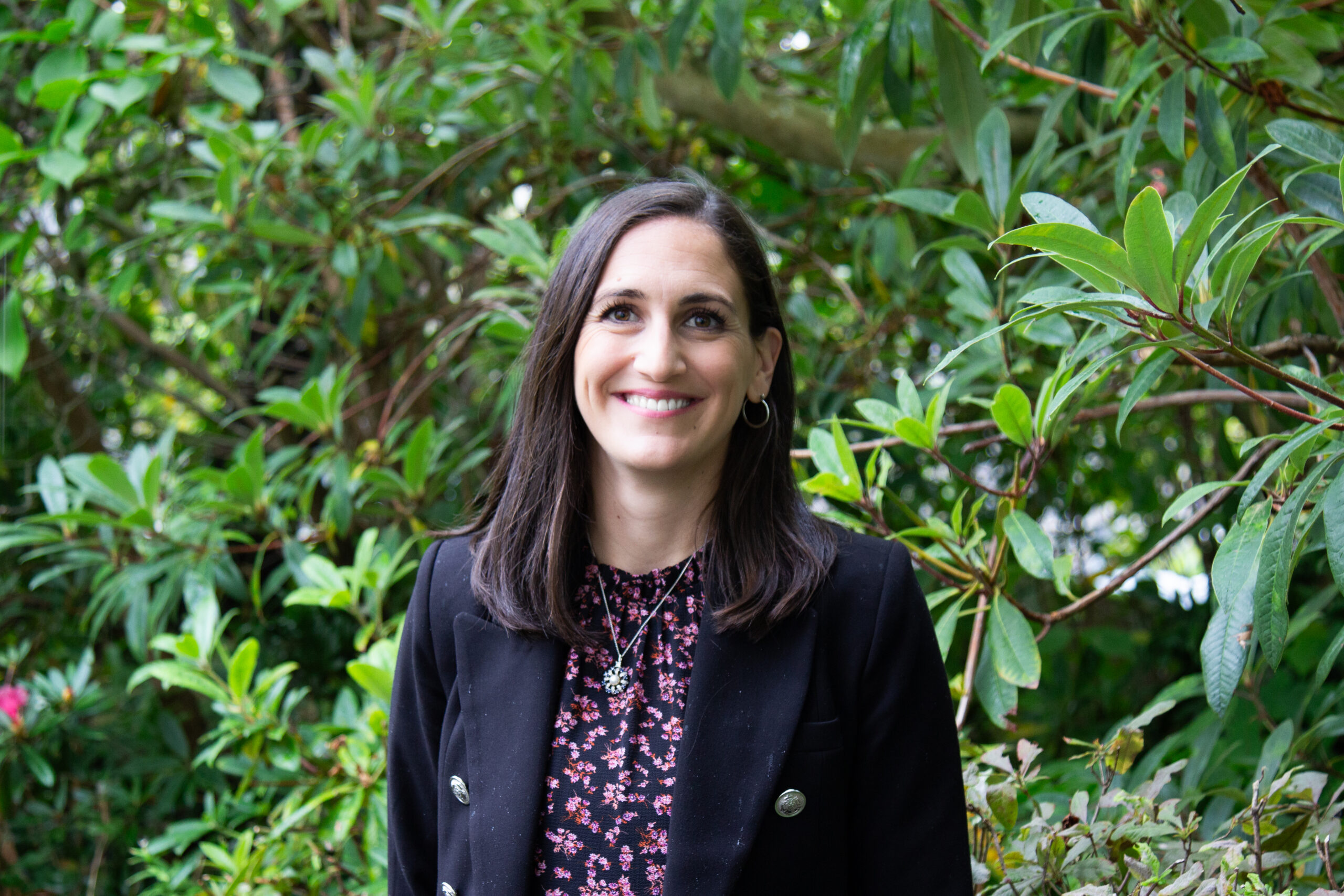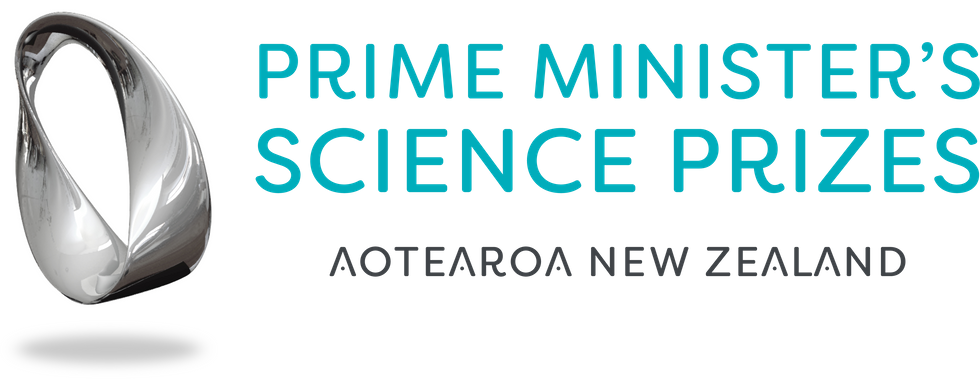Breathtaking – for better understanding and treatment of anxiety

Media Release: Te Puiaki Kaipūtaiao Maea | Prime Minister’s MacDiarmid Emerging Scientist Prize
Dr Olivia Harrison, from Ōtākou Whakaihu Waka, University of Otago, has won Te Puiaki Kaipūtaiao Maea, the Prime Minister’s MacDiarmid Emerging Scientist Prize, for developing a multidisciplinary approach to understanding and managing anxiety.
Olivia is a Rutherford Discovery Research Fellow and Senior Lecturer in the Department of Psychology, with a background in neuroscience and exercise physiology.
Her research focus is on anxiety and mental health. She says there’s an increase in the prevalence of anxiety reported globally and New Zealand has the fourth-highest prevalence worldwide. Māori communities experience particularly high rates of anxiety.
Link between breathing and anxiety
Olivia started studying the link between breathing and anxiety when she was living in Switzerland. This area of research is called interoception – the mental perception of internal sensations, such as heart rate, hunger, temperature, pain, and emotions.
Dysregulation of interoception can contribute to anxiety disorders, if the brain misinterprets signals from the body, or vice versa. For example, a person may feel intense emotions, such as fear or dread, that seem out of proportion to the perceived threat. Alternatively, a person may feel their heartbeat is racing, and this can trigger anxious emotions. Olivia knew that breathing could be a valuable window into studying this.
“We can use breathing to change symptoms in our body and measure what happens in our brain, or in our behaviour.”
They developed breathing tests that can be carried out in the lab or the MRI scanner to pinpoint where the communication between the brain and the body may have broken down.
“Breathing and anxiety are tightly intertwined and that’s something we probably all know. When you get anxious, you can either breathe too fast or you can hold your breath, but people often don’t know which they do.”
Olivia says not only is breathing is a “phenomenal tool” to understand anxiety, it’s also a great tool for treatment.
“It’s a way we can change what’s happening on the inside. If we’re really tense—our heart is beating fast, our stomach is churning and we’re breathing differently—we can use breathing to change those other automatic processes that we don’t have access to.”
“Different cultures have, of course, known about and used breathing in this way for centuries,” Olivia said.
Multidisciplinary studies
Receiving a Rutherford Discovery Fellowship allowed Olivia to return to New Zealand and set up an interdisciplinary lab combining neuroscience, psychiatry, psychology, physiology, pharmacology and computational modelling. Her team is running longitudinal intervention studies on two of the currently prescribed treatments for anxiety: exercise and antidepressant medication (SSRIs, selective serotonin reuptake inhibitors).
Olivia says that exercise works well for people to help manage their anxiety and make sure it doesn’t worsen.
They are studying how different types of exercise—aerobic and stretching—can help reconnect someone with their body and ease anxiety. “Aerobic exercise allows you to experience symptoms such as a fast heart-rate and increased breathing in a safe context, whereas stretching exercises can be calming, and allow you to spend time with your body and away from life’s stresses,” Olivia said.
“Both of these types of exercise can really help and we want to know how and why and who they work for.”
Olivia’s team is aiming to better understand how anxiety might change our perceptions so that people can understand why they are behaving and feeling a certain way, but also identify biomarkers to narrow down which treatment will be most likely to work for each individual. “We want to make a difference faster.”
Community engagement
Working with communities is extremely important to Olivia. “It’s about the connection with people. We need to make sure that the treatments we’re developing fit into the structures of the health system, but also we need to be hearing from the community about what problems they have and what will likely work. The best treatment is what people will actually do.”
Anxiety is disproportionately high in New Zealand, particularly for Māori. Olivia’s team has been working closely with Puketeraki Marae in Karitāne, and the team’s Kaiāwhina Nikki Crossan advises the group on te ao Māori perspectives and appropriate tikanga so they can develop the cultural competency they need to work well with Māori communities.
Nikki says Olivia’s warmth and genuineness was evident from their first meeting and she is very happy to work alongside Olivia and contribute to her mahi. “Mental health is so important, not just for our people, but for our country.”
Holistic focus
Thomas Cawood is a PhD student in Olivia’s lab. He’s studying early-stage biomarkers for psychosis disorders, such as schizophrenia. He says that Oliva has so much energy and knowledge she is “like three people in one”.
He’s excited by the emerging field of research linking mental health with the physiology of the body. “There’s a growing recognition that not only does the brain affect the body, but the body affects the brain.”
“The key question is how can we expand the horizons of current research beyond just medications or therapy but integrate the whole body into the system?” Thomas said.
Olivia agrees a more holistic view is needed. “It’s about seeing the anxiety symptoms and the person experiencing anxiety as a whole being.”
Reason for high rates of anxiety
In terms of treating anxiety, Olivia says it’s not about stamping it out. “Anxiety about real threats in our environment has kept us alive.”
She thinks the surge in the numbers of people reporting anxiety is because we haven’t yet adapted to our new technological environment. “We’re exposing ourselves to different types of information and threat that maybe we’re not prepared for.”
Children likely don’t have the resources to deal with the barrage of bad news available on social media, and as adults, we have to learn when to switch off from the constant stream of bad news stories to not trigger anxiety in ourselves, she explained.
On winning the prize
Olivia says winning the Prime Minister’s MacDiarmid Emerging Scientist Prize is an incredible honour and will help support her lab to continue with their research. “What I want to do with all of this is to make a positive difference for people who are suffering from anxiety.”
She also hopes it will create more exposure for the issue.
“We’ve made huge strides in talking about mental health and anxiety, but, especially in New Zealand, I don’t think we’re quite there yet.”
For her, science is both “incredibly creative” and fulfilling.
“You have this problem to solve and you can come at it in 50 million different ways. You can work together as a team, and you can do something that will hopefully help someone.”
